BOOKKEEPING ARTICLES AND RESOURCES

Bookkeeping for Small Business: 4 Ways to Make it Easier
Bookkeeping for small business means keeping track of all a company's financial transactions. Every financial transaction throughout business operations is recorded, classified, and organized by bookkeepers. And today, you'll be learning about why convenience leads to success.
What’s Bookkeeping?
For those unfamiliar with the term, bookkeeping refers to the practice of documenting every financial transaction made by a company from its early beginnings through its closure.
Every financial transaction is recorded with accompanying documents, which vary depending on the company's accounting system. As evidence, a receipt, an invoice, a purchase order, or any financial record demonstrating the transaction occurred could be presented.
Make Bookkeeping for Small Business Easier
Bookkeeping for small businesses takes a lot of effort. Things may get chaotic when it comes to funding your concept, promoting it to clients, and employing new personnel. As a result, it's critical to conserve time wherever possible so that you may complete everything without losing quality.
That said, bookkeeping for small businesses is one area where you can most certainly save time. And here are a few ways on how to save time in bookkeeping.
1. Use Automated Payroll
It might take a long time to sit down at your computer and manually handle all of your employees' paychecks. You'll need to look through each employee's hours, approve them, print the checks, sign and date them, and mail them. All of this can be handled more easily with automatic payroll.
All of the printing, signing, and dated labor is done for you by automated payroll systems. You only need to approve the payment, and cheques will be sent out immediately. Your employees will appreciate receiving their paychecks sooner, and you will have more time to focus on other aspects of the firm.
2. Implement Businesses Factoring Loans
You might want to seek a business factoring loan if you're spending too much time trying to chase down client payments so your company doesn't go out of business.
When you sell your customer invoices to a financial organization, this is known as business factoring. The corporation then pays you 75% of the invoice amount right once, providing you fast access to funds. You'll get the remainder of your money less factoring costs when the consumer eventually pays.
3. Utilize Online Banking
It's difficult to find a financial institution that doesn't provide internet banking these days. Make sure you're taking full use of these services, since they may help you save a lot of time at the bank.
Instead of traveling out of your way to withdraw dollars or deposit checks, you can shift your money around by just pressing a few buttons.
4. Invest In Accounting Software
To keep your bookkeeping to a minimal, you'll need reputable accounting software for bookkeeping. Bookkeeping software can assist you in keeping track of your bank accounts, generating reports, recording deposits and debits, and much more. You'll never have to write a report by hand again.
However, this software will only be useful if you understand how to use it, so consider taking a class to learn more about it, or invest in having it set up for you. Businesses like Bottcher Business Management Agency will set it up in a way that makes the most sense for your business, and then provide you with the step by step process to complete your bookkeeping efficiently.
Conclusion
Bookkeeping for small business provides a trustworthy gauge of a company's performance. It also serves as a guide for making broad strategic decisions and a benchmark for its sales and profit targets.
Once a company is up and operating, it is necessary to devote more time and resources to preserving accurate records.

Bookkeeping for Small Business: 4 Ways to Make it Easier
Bookkeeping for small business means keeping track of all a company's financial transactions. Every financial transaction throughout business operations is recorded, classified, and organized by bookkeepers. And today, you'll be learning about why convenience leads to success.
What’s Bookkeeping?
For those unfamiliar with the term, bookkeeping refers to the practice of documenting every financial transaction made by a company from its early beginnings through its closure.
Every financial transaction is recorded with accompanying documents, which vary depending on the company's accounting system. As evidence, a receipt, an invoice, a purchase order, or any financial record demonstrating the transaction occurred could be presented.
Make Bookkeeping for Small Business Easier
Bookkeeping for small businesses takes a lot of effort. Things may get chaotic when it comes to funding your concept, promoting it to clients, and employing new personnel. As a result, it's critical to conserve time wherever possible so that you may complete everything without losing quality.
That said, bookkeeping for small businesses is one area where you can most certainly save time. And here are a few ways on how to save time in bookkeeping.
1. Use Automated Payroll
It might take a long time to sit down at your computer and manually handle all of your employees' paychecks. You'll need to look through each employee's hours, approve them, print the checks, sign and date them, and mail them. All of this can be handled more easily with automatic payroll.
All of the printing, signing, and dated labor is done for you by automated payroll systems. You only need to approve the payment, and cheques will be sent out immediately. Your employees will appreciate receiving their paychecks sooner, and you will have more time to focus on other aspects of the firm.
2. Implement Businesses Factoring Loans
You might want to seek a business factoring loan if you're spending too much time trying to chase down client payments so your company doesn't go out of business.
When you sell your customer invoices to a financial organization, this is known as business factoring. The corporation then pays you 75% of the invoice amount right once, providing you fast access to funds. You'll get the remainder of your money less factoring costs when the consumer eventually pays.
3. Utilize Online Banking
It's difficult to find a financial institution that doesn't provide internet banking these days. Make sure you're taking full use of these services, since they may help you save a lot of time at the bank.
Instead of traveling out of your way to withdraw dollars or deposit checks, you can shift your money around by just pressing a few buttons.
4. Invest In Accounting Software
To keep your bookkeeping to a minimal, you'll need reputable accounting software for bookkeeping. Bookkeeping software can assist you in keeping track of your bank accounts, generating reports, recording deposits and debits, and much more. You'll never have to write a report by hand again.
However, this software will only be useful if you understand how to use it, so consider taking a class to learn more about it, or invest in having it set up for you. Businesses like Bottcher Business Management Agency will set it up in a way that makes the most sense for your business, and then provide you with the step by step process to complete your bookkeeping efficiently.
Conclusion
Bookkeeping for small business provides a trustworthy gauge of a company's performance. It also serves as a guide for making broad strategic decisions and a benchmark for its sales and profit targets.
Once a company is up and operating, it is necessary to devote more time and resources to preserving accurate records.

Quick Links
Why Choose Us
How does it work
Pricing
Social Media Links
© 2024 – Bottcher Group of Companies
All Right Reserved



